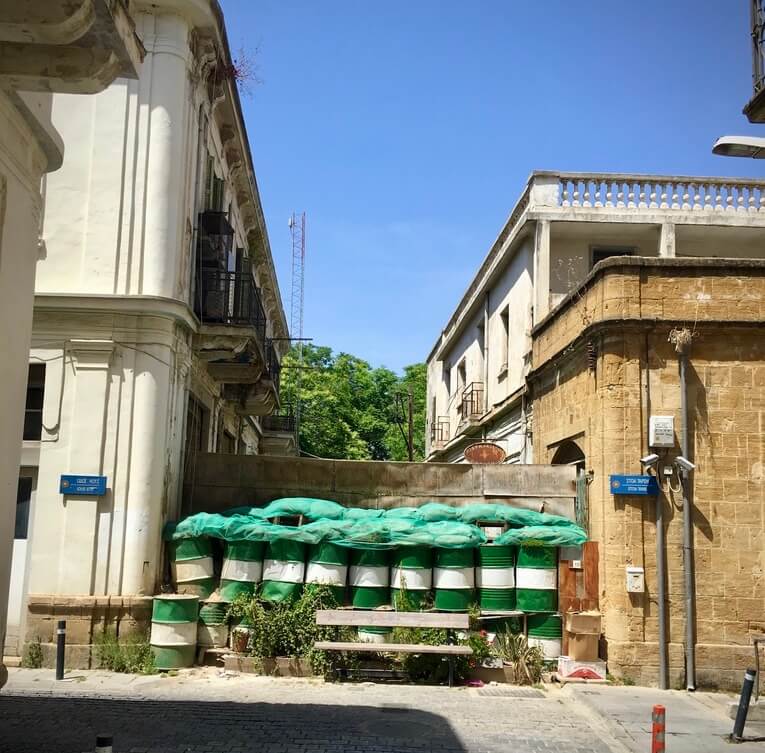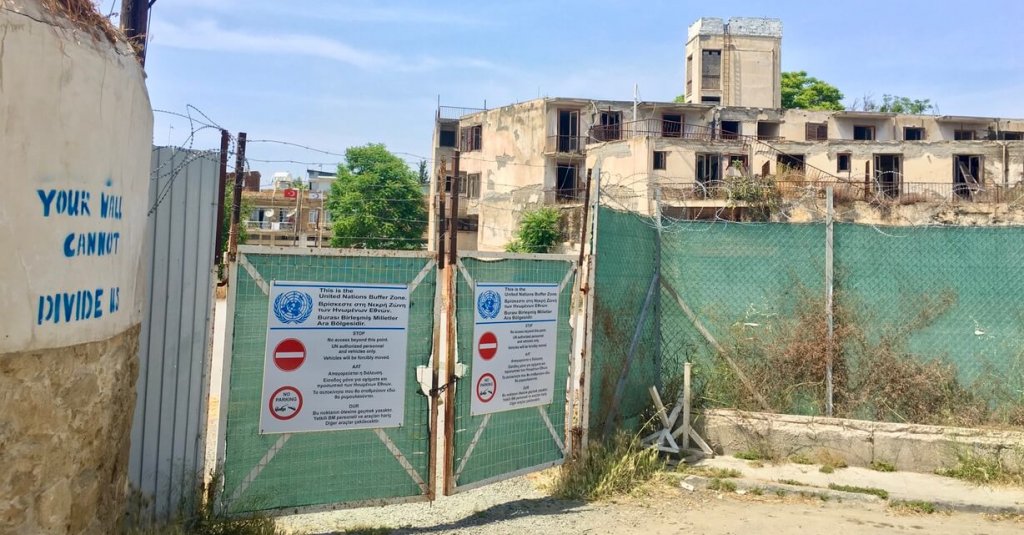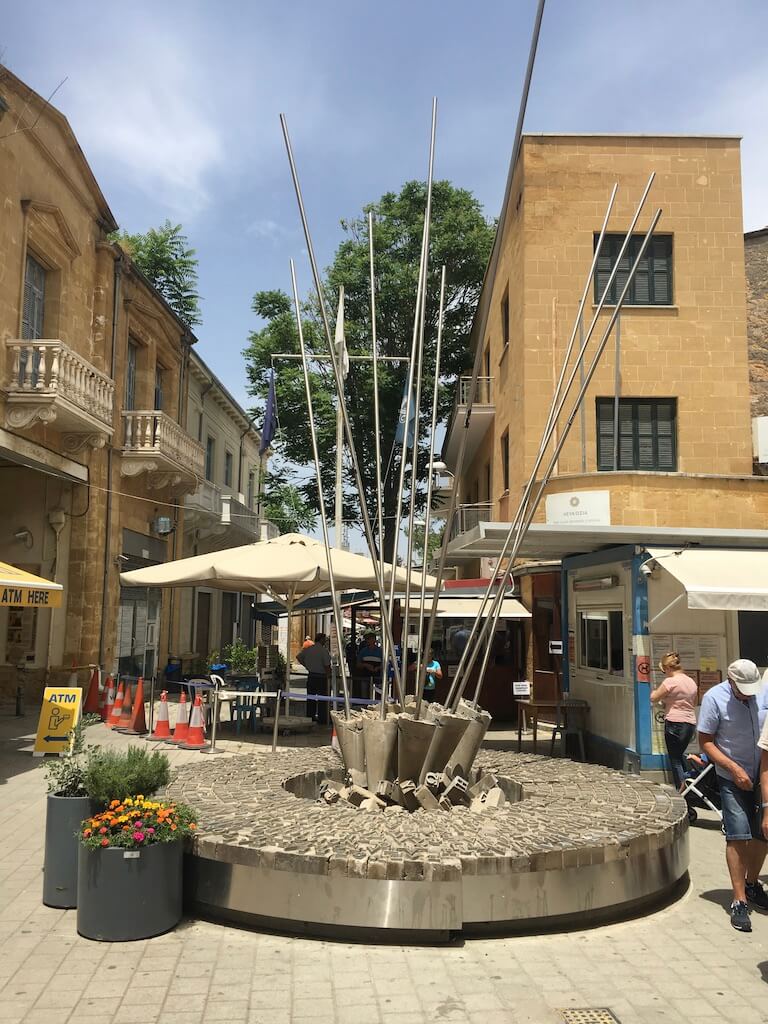
Cyprus is experiencing a rare moment in which something other than the long-lasting Cyprus problem dominates the media coverage. Since the outbreak of the coronavirus (Covid-19) pandemic, Greek and Turkish Cypriots, like almost everyone around the world, have focused solely on the news and updates about the spreading virus. The Cyprus problem has been side-lined amidst such a serious crisis. In fact, debates over the coronavirus in Cyprus began ten days before the first case was reported, on 9 March 2020. On 28 February, the Republic of Cyprus (RoC) announced a week-long closure of four of the nine checkpoints on the divided island as a ‘precautionary measure’.
The decision may resemble an ordinary precaution, considering the ways other countries and organizations have acted. The European Union (EU), for instance, agreed to temporarily close its external borders to all non-essential travels from third countries, while member states have reintroduced further border controls. However, the fact that the RoC closed some of the checkpoints in the absence of flight restrictions from other countries, raised questions. Of course, it would be unfair to place all the burden on the RoC government, since the Turkish Republic of Northern Cyprus (TRNC) also announced temporary closure of two additional checkpoints on 12 March 2020. This decision has created a debate in the north of the Island as it seems that the TRNC government neglected to inform President Mustafa Akıncı, before taking this decision. The subsequent announcement by the Turkish Cypriot authorities on 14 March 2020 broadened the scope of restrictions, temporarily ban all entries to the North, except its citizens.
Closing checkpoints may be reasonable, to some extent, though the World Health Organization (WHO) warns that travel measures ‘that significantly interfere with international traffic may only be justified at the beginning of an outbreak’. In the case of Cyprus, such measurements would be quite harmful considering their impact on everyday life of a divided society. It thus becomes important to examine the potential repercussions of such actions and their impact on the Cyprus problem along with daily lives of all Cypriots.

The importance of checkpoints and interaction between the two communities
It has been almost twenty years since the then United Nations (UN) Secretary General Boutros Boutros-Ghali stressed the ‘deep crisis of confidence between the two sides’ and said that it would be difficult ‘to envisage any successful outcome to the talks for as long as this situation prevails’. In order to establish trust between the two communities, he proposed a myriad of confidence-building measures (CBMs), such as cooperation on education, transportation, health, environment, water supply, energy and cultural activities. Community leaders rejected all these CBMs at the time, but the emphasis on the CBMs has persisted in subsequent UN documents.
The Turkish Cypriot authorities lifted the restrictions on crossing the Buffer Zone on 23 April 2003. This was an important milestone in building bridges between the Greek and Turkish Cypriot communities, especially considering the lack of -or rare and limited- interaction for decades. Papadakis (2005: 242) reflected on the occasion on the opening day: ‘[Northern Cyprus] until yesterday was so far away, further than any other country in the world; this place of lost memories and homes for some, of complete mystery for the young.’
Today, nine checkpoints are situated along the UN-administered Buffer Zone -known as the Green Line- that separates the northern and southern parts of the island. The last two checkpoints were opened in November 2018 as a component of the CBMs. According to the implementation report of the Green Line Regulation, which was adopted by the European Council in April 2004 and lays out the terms for crossing of persons and goods, 3.2 million people -Greek and Turkish Cypriots and foreign nationals- crossed the checkpoints in 2018 alone. Although some people living on the island never cross to the other side, these figures are important, considering the impact that interaction has on attitudes in both communities.
Research reports show that there has been significant improvement in the breadth of trust between the two sides since the checkpoints were opened after decades of separation. As Yücel and Psaltis (2019: 2-13) deduced, intergroup contact is associated with positive outcomes: prejudice reduction, trust-building and willingness for a peaceful coexistence. However, as suggested, there is still a need to focus on specific groups such as Greek Cypriot youth and older Turkish Cypriots, who are the most resistant groups to reconciliation, to improve both the quantity and quality of contact. Nevertheless, it is impossible to underestimate the positive impact of checkpoints in building trust between the Greek and Turkish communities.
The flow of people, especially shopping related daily crossings from South to North, has grown constantly for the last two years due to devaluation of the Turkish Lira against the Euro. This has already become a source of criticism by Greek Cypriot companies about unfair competition from the North. Moreover, the Cypriot government tried in late 2019 to amend the Green Line regulation with stricter checks by raising concern about illegal migration. Such checks would also include the citizens of the RoC, who had not previously been subjected to such measures. Following all this was the unilateral decision by the RoC government to ultimately close four checkpoints on February 28, even though the Bi-Communal Technical Committee on Health concluded that such actions were unnecessary.
Such unilateral decisions on either side of the island trigger extremist ideas. This strain of extremism was evident in the latest protest by the supporters of the National People’s Front (ELAM), a far-right nationalist party, or fans of APOEL football club. Of course, extremist movements or ideas are not limited to the South; the same behaviour appears in the North as well.
On the other hand, Cypriots on both sides actively support the reunification of the island. As reflected in the media, hundreds gathered on the day of closure on either side of the Ledra Street (Lokmacı) checkpoint, which was opened in 2008 and became one of the busiest crossings, to protest the decision. Subsequent demonstrations were cancelled due to the growing number of coronavirus cases on both sides. But the groups, such as Unite Cyprus Now, have continued to react on social media, although concerns fall on deaf ears.

Cooperation versus Unilateral Action
Discussions over how the world will look after the coronavirus pandemic have been popular for a while now. Such discussions include, but are not limited to, debates on whether this pandemic will precipitate international cooperation or unilateral action by states. Many countries, including most EU member states, thus far have opted for unilateral action. Cyprus is certainly not exempt from this debate.
Nevertheless, some joint attempts took place even before any cases of the coronavirus had been reported on either side of the Green Line, including convening the Bi-communal Technical Committee on Health, which was also established in 2008 to share information and to resolve health-related issues. Accordingly, the technical committee met on 3 February, 20 February and 3 March 2020 to assess the situation and discuss ways of cooperation and measures in response to the pandemic. However, these discussions and precautions proved futile when the first case was reported in the South on 9 March 2020 and in the North the day after.
Both Greek and Turkish Cypriot authorities have been focusing on unilateral precautions since then to prevent the spread of the virus, ranging from partial curfews to strict curfews in the villages at the Karpas Peninsula, closing of non-essential businesses and economic aid packages. It is still uncertain whether the two communities will cooperate after the situation eases, though current prospects are not very promising.
The Current State of the Cyprus Problem
Perusing the endless stream of news about the Cyprus problem, one could easily interpret countless peacebuilding efforts over time as the ‘last chance for Cyprus’. This never-ending trend of ‘last chances’ in Cyprus prevents to be optimistic about the future attempts as well.
The latest UN-facilitated negotiations that Nicos Anastasiades and Mustafa Akıncı, the Greek and Turkish Cypriot leaders, respectively, held in July 2017 in Crans Montana, Switzerland failed. The leaders have met several times since then to reinvigorate the negotiations with the attendance of the UN Special Envoy Jane Holl Lute or the UN Secretary General’s Special Representative to Cyprus and Chief of Mission Elizabeth Spehar. Lately, UN Secretary-General Antonio Guterres summoned the leaders to an informal meeting in Berlin on 25 November 2019. But they have yet to agree to the ‘terms of reference’ to initiate another round of talks.
The initial impact of the pandemic in Cyprus has been the resurrection of the de factodivision of the island and the tendency to ignore each other. This could be condoned in the short-term as both communities are under partial curfews. However, the prolongation of the current stalemate would reinforce existing isolationist, unilateral or even extremist ideas on either side that would further diminish the chances of resolving the Cyprus problem.
It is certain that negotiations have been on the standby for a while due to the presidential election, scheduled for 26 April 2020, on the Turkish side. This electoral contest, like many others around the globe, has now been postponed by six months because of the coronavirus pandemic. Although the incumbent President Mustafa Akıncı will remain in office until the election as a caretaker, it would be difficult to expect the resumption of talks under the current circumstances.
The UN Secretary General recently reminded us all that it is time to ‘focus together on the true fight of our lives’. It is hoped that his call will pave the way for cooperation in Cyprus against a very real common enemy.
_______________________________________________________________________________________________

Dr. Cihan Dizdaroğlu, is a MarieSkłodowska-Curie Actions (MSCA) fellow and assistant professor at the Centre for Trust, Peace and Social Relations (CTPSR) at Coventry University. His research project receives funding from the European Union’s Horizon 2020 research and innovation programme under the Marie Sklodowska-Curie grant agreement No 796053. He retains a lecturer position in the Department of Political Science and Public Administration at Kadir Has University and serves as an associate editor of the Journal of International Relations (Uluslararası İlişkiler).

